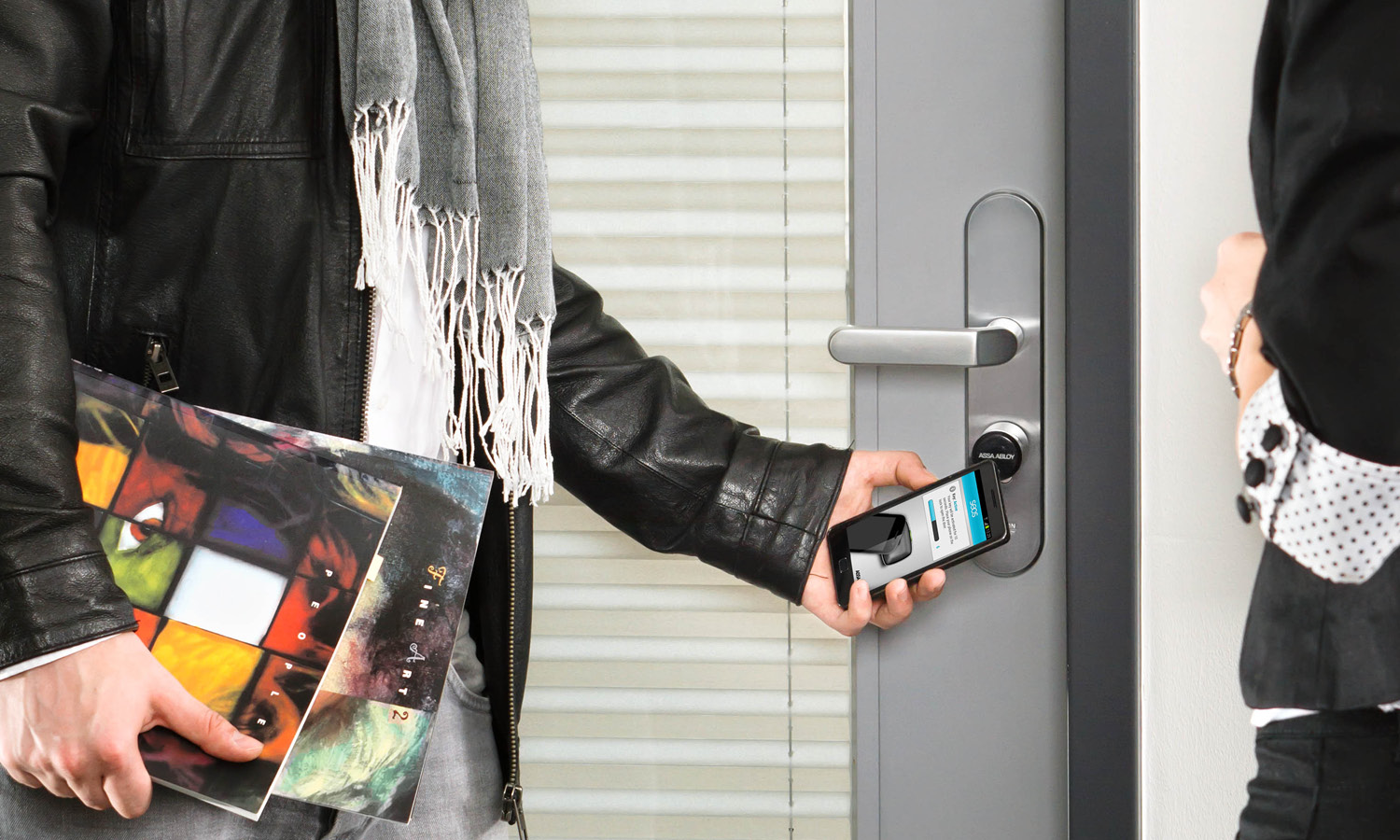Universities push traditional access control to its limits. The more you ask of it, the tougher it gets.
You want to monitor access all over campus. To know who comes and goes to computer rooms and classrooms. You’d like to filter access to conference and seminar rooms according to the time — lecturers all day, cleaners and contractors after hours. Meanwhile, you want students to be safe 24/7, without compromising the sense of freedom they enjoy on campus.
Mechanical lock-and-key security cannot do this. Managing keys weighs facilities staff down. Students lose them all the time, and they’re expensive and laborious to replace. The traditional solution — wired doors with card readers — is costly to fit and run. There is an alternative.
“Battery-powered electronic locks with inbuilt RFID readers are a cost-effective way to upgrade existing access control and bring it to more doors,” says Lars Angelin, Business Development Manager for Wireless Locks at ASSA ABLOY Opening Solutions EMEA. “Our AperioÒ wireless locks integrate seamlessly with more than 100 different security systems. You don’t even need to change your smart-cards. They fit all kinds of doors.”
“And because they are battery-powered and wire-free, they’re much more cost-effective to install and run than traditional electronic door security.”
It sounds great in theory. But what about the real world? These 5 universities have experienced an impact already.
University of Liverpool, England: aesthetics and sustainability
A BREEAM sustainability rating of “Excellent” was reward for innovative architecture that combines aesthetics with environmental awareness*. Vine Court’s sustainable features include rainwater harvesting, solar water heating and battery-powered Aperio wireless electronic locks. Unlike wired access control, Aperio wireless locks use little electricity. Catherine Anderson at the University of Liverpool called Vice Court “a new and exciting benchmark for the Student Accommodation Sector.”
Lund University Faculty of Law, Sweden: easy migration from a 20-year-old system
The Law Faculty wanted to replace their access system without asking 50,000 students and staff to return existing smart-cards for reprogramming. Aperio made the process almost invisible from a user perspective. They didn’t even need to revalidate at a reader. Convenience is king: with Aperio wireless locks, security managers block lost cards without traipsing to every door. A Pacom Unison security platform handles everything seamlessly. Facilities staff spend less time on admin and more on security.
Aberdeen University, Scotland: online and affordable
At Aberdeen’s refurbished Student Village, Aperio online cylinders and certified security locks cover doors requiring different grades of security. Cost efficiencies came at installation stage — no cabling to the doors means no expensive electrical contractors — and will continue through the locks’ operational life. Unlike standard wired access control that requires “always-on” mains electricity, Aperio wireless locks are powered by batteries. These typically need replacing every couple of years — and that’s it for maintenance.
HafenCity University Hamburg, Germany: key-free campus for a landmark development
A partnership between SIEMENS and ASSA ABLOY provides intelligent, transparent electronic access control at a new docklands hub for the university. Aperio electronic cylinders filter access to the media centre, library, cafeteria, seminar rooms, staff rooms, laboratories and offices. Locking with these wireless RFID devices enables the university to remain an open, welcoming space without sacrificing staff and student safety.
University of Birmingham, England: integrated, future-proof access management
Two new accommodation blocks at the university’s Vale Village complex needed locks to integrate seamlessly with a pre-existing campus security system, including Gallagher Command Centre software. Aperio locks now secure almost 1,800 doors with a low-cost solution that eases the key management workload for facilities staff. Everything is controlled from the Gallagher interface. And because Aperio is scalable, they can add new doors and buildings whenever they choose.
To learn more about AperioÒ wireless digital locking systems and download a free solution guide, visit https://campaigns.assaabloyopeningsolutions.eu/aperio.


